Understanding Electrical Panel Upgrade Needs
In our increasingly technology-driven world, the need for a robust electrical system is more critical than ever. An integral part of this system is the electrical panel, which regulates the distribution of electrical power throughout your home. If you’re questioning the state or functionality of your electrical panel, you might need to consider an Electrical Panel Upgrade. Understanding the signs, benefits, and types of electrical panels can equip you with the knowledge necessary to make informed decisions regarding your home’s electrical needs.
Signs You Need an Electrical Panel Upgrade
Recognizing the right time to upgrade your electrical panel is crucial to maintaining the safety and efficiency of your home’s electrical system. Here are some notable signs to consider:
- Frequent Circuit Breaker Trips: If your circuit breakers consistently trip or fuses blow, this can indicate that your panel is inadequate for your current electrical demand.
- Old Circuit Breaker Panel: Panels older than 20 to 30 years may be outdated in the current technological landscape; newer models provide enhanced safety and efficiency.
- Increased Energy Needs: If you have recently added major appliances, such as air conditioning units, EV chargers, or upgraded lighting systems, your panel may struggle to keep up.
- Burning Smells or Discoloration: Any signs of burning plastic or discoloration around the panel are serious hazards and require immediate attention.
Benefits of Upgrading Your Electrical Panel
Upgrading your electrical panel offers several vital benefits that enhance your home’s overall electrical functionality:
- Increased Electrical Capacity: Upgrading allows for higher amperage, accommodating more circuits and devices, which is especially important with the rise of smart home technology.
- Improved Safety: Modern panels feature better safety mechanisms that help prevent electrical fires and short circuits.
- Enhanced Home Value: A new panel signals that your home is up to date with modern electrical standards, often leading to higher resale value.
- Support for Modern Appliances: As technology advances and appliances require more power, upgrading ensures that your home meets these demands without complications.
Types of Electrical Panels Available
When considering an upgrade, it’s essential to know the types of electrical panels available. Here are the primary options:
- Standard Breaker Panel: This is the most common type for residential properties, offering a reliable means of distributing electricity throughout the house.
- Sub Panels: Installed to handle additional circuits, especially in locations with heavy electrical needs, such as workshops or garages.
- Smart Panels: Advanced technology panels with smart capabilities that provide real-time monitoring and remote management of your home’s electrical use.
Assessing Costs for Electrical Panel Upgrade
Understanding the financial aspects related to an electrical panel upgrade is crucial for effective budgeting and planning. Here’s a detailed overview of the costs involved:
Typical Costs of Electrical Panel Upgrades
The costs of upgrading an electrical panel can vary significantly based on several factors. Typically, homeowners can expect to pay between $800 and $4,000 for an upgrade. This cost encompasses:
- Labor Costs: Electricians generally charge between $50 and $120 per hour, depending on their experience and location.
- Panel Costs: The physical panel itself may range from $100 to about $500, with additional costs for circuit breakers and accessories.
- Permitting Fees: Local municipalities may require permits, which can add to the overall cost.
- Additional Materials: Wiring, conduit, and other materials necessary for a complete installation might incur extra expenses.
Factors Influencing Upgrade Costs
Several key factors can influence the overall costs associated with an electrical panel upgrade:
- Size and Amperage of the New Panel: Larger and higher amperage panels typically require more costly installations due to the increased material and labor needed.
- Condition of the Existing Wiring: If the wiring is outdated or damaged, it may require replacement, which can drive up costs.
- Electrician’s Experience and Reputation: Highly-rated electricians might charge premiums for their expertise, impacting your budget.
- Location: Prices can vary based on geographic location; urban areas may face higher labor and material costs than rural settings.
Financing Options and Incentives
For homeowners concerned about the costs involved, there are several financing options and potential incentives available:
- Home Equity Loans: Utilizing the equity built in your home allows for lower interest rates.
- Local and Federal Incentives: Some regions offer rebates or tax credits for electrical upgrades, especially those enhancing energy efficiency.
- Utility Company Programs: Many utility providers have programs that may subsidize the cost of upgrading your electrical panel when planning for energy-efficient appliances.
Choosing the Right Electrician for Your Upgrade
Your electrician will play a crucial role in the success of your electrical panel upgrade. Carefully selecting a qualified professional is essential:
What to Look for in a Professional Electrician
Here are key characteristics to evaluate when selecting an electrician:
- Licensing and Insurance: A qualified electrician must possess the necessary licenses and insurance to protect you and their crew.
- Experience with Panel Upgrades: Look for an electrician who specializes in electrical panel upgrades and has a proven track record of successful projects.
- Clear Communication: They should be willing to explain the process thoroughly and answer any questions you may have.
Questions to Ask Before Hiring
Asking the right questions can help ensure that you make the right choice:
- What experience do you have with panel upgrades similar to mine?
- Can you provide references from previous clients?
- What is the estimated timeline for the project completion?
- Will you obtain the necessary permits and inspections?
The Importance of Licensing and Insurance
Hiring an electrician who is not only licensed but also holds insurance is essential for protecting yourself from potential liabilities. A licensed electrician demonstrates a level of professionalism and expertise, while insurance protects you in the event of accidents or damage during the installation process.
Preparing Your Home for an Electrical Panel Upgrade
Proper preparation for an electrical panel upgrade can lead to a smoother installation process while ensuring safety:
Creating a Safe Work Environment
Ensure that the area around the electrical panel is clear and accessible. Remove any furniture or obstacles that may impede the electrician’s workspace. Consider placing drop cloths or protective coverings to guard against dust, debris, and damage during the installation process.
What to Expect During Installation
During the installation process, here’s what you can typically expect:
- Power Disruption: The electricity will be turned off for safety, and there may be some power interruption in your home.
- Inspection of Existing Wiring: The electrician will inspect your existing wiring to ensure it meets current codes and is safe for installation.
- Installation and Configuration: The new panel will be installed, and existing circuits will be transferred to meet current electrical loads.
Post-Installation Checklist
Once the installation is complete, ensure you perform a checklist to verify everything is in order:
- Confirm that all circuits are functioning correctly.
- Request documentation on the new panel and any work completed.
- Schedule any necessary inspections to comply with local electrical codes.
Long-Term Benefits of an Electrical Panel Upgrade
The investment in an electrical panel upgrade yields significant long-term advantages for both convenience and safety:
Improved Safety and Efficiency
Modern electrical panels are designed with advanced safety mechanisms, significantly reducing the risk of electrical fires caused by short circuits and overloads. Upgrading ensures that your home adheres to current safety codes, making it a much safer environment.
Enhanced Home Value
When upgrading your electrical panel, consider that a modern and functional electrical system can greatly enhance your home’s resale value. Homebuyers often prefer properties with updated electrical systems, viewing them as healthier investments.
Future-Proofing Your Home’s Electrical Needs
As technology continues to advance, the electrical demands of our homes also evolve. An upgraded electrical panel not only accommodates your current needs but positions you well for future additions—be it smart home technology, electric vehicle chargers, or other high-energy appliances—shaping your home into a future-ready sanctuary.



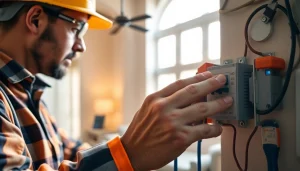





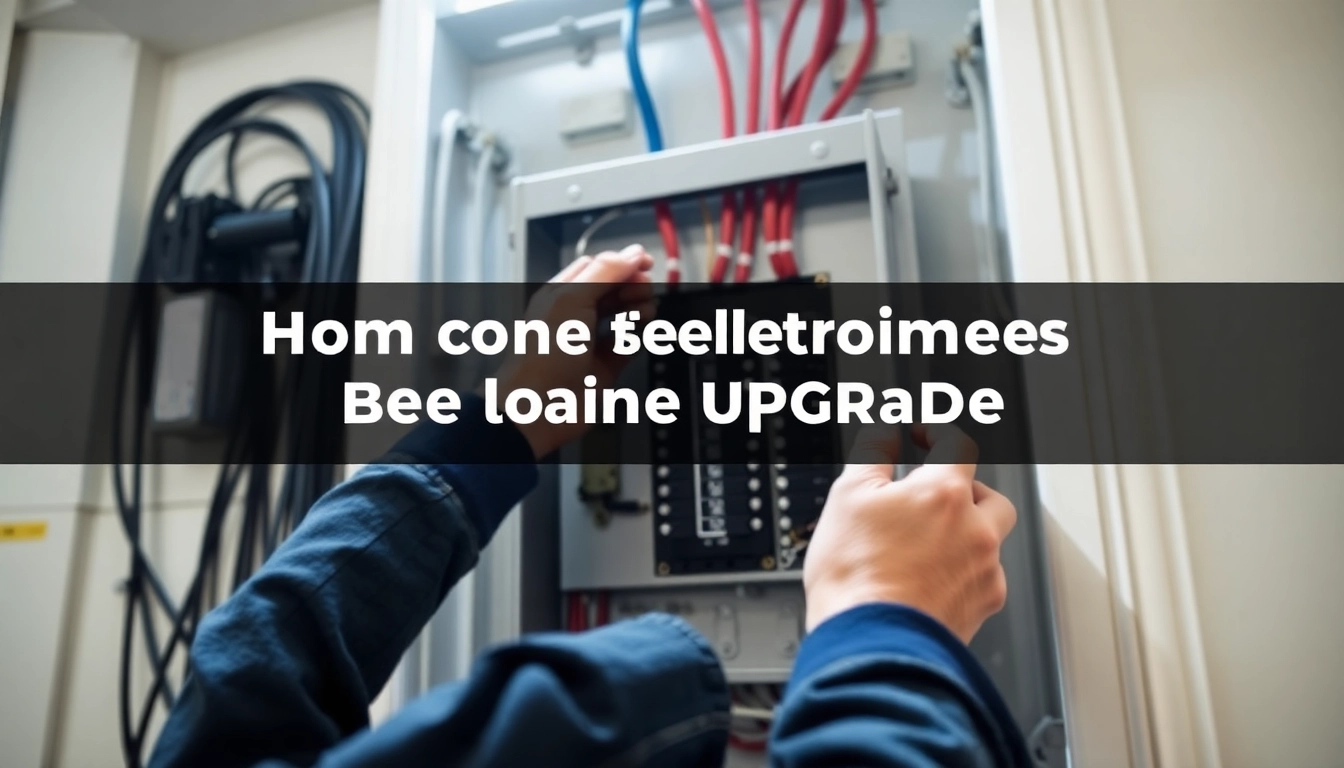

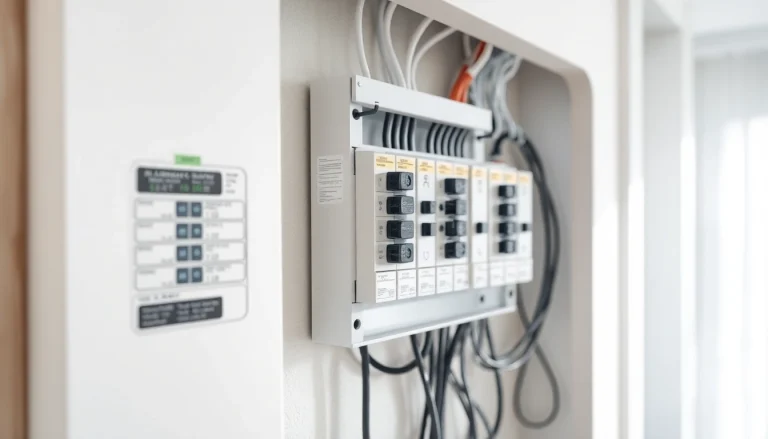


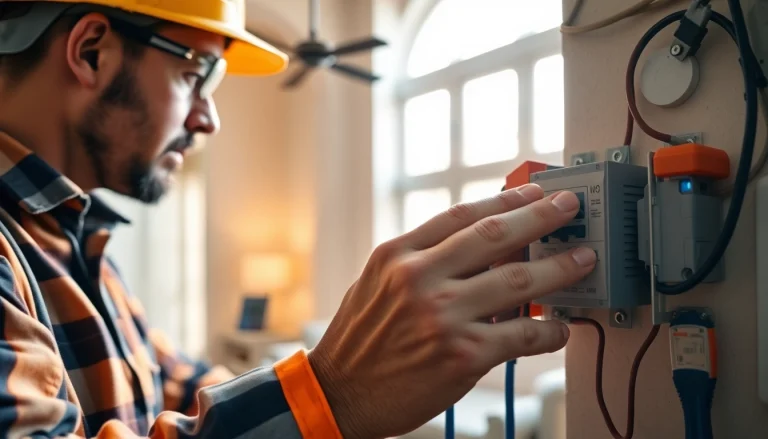

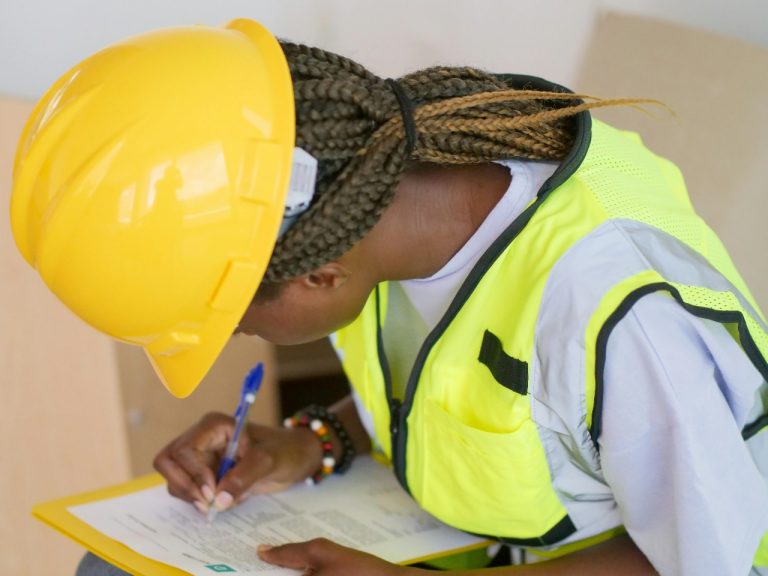

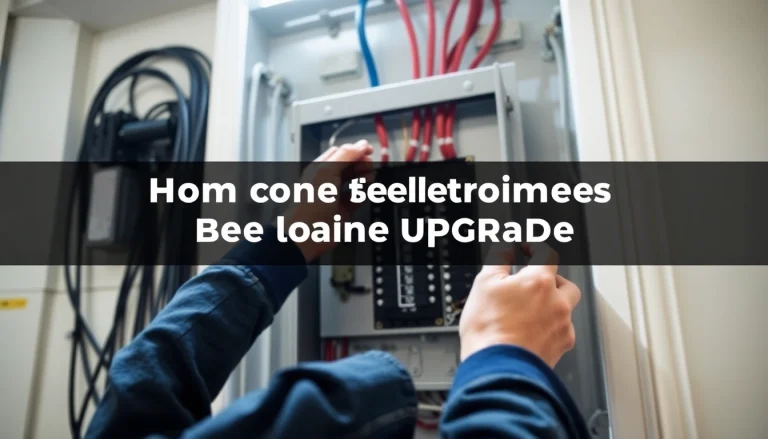


+ There are no comments
Add yours